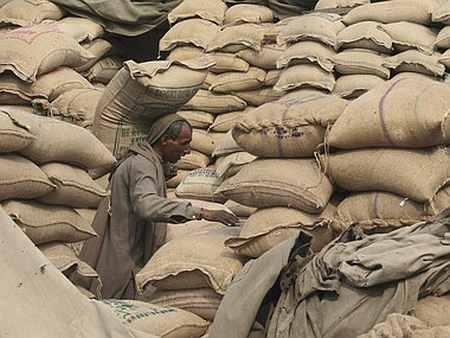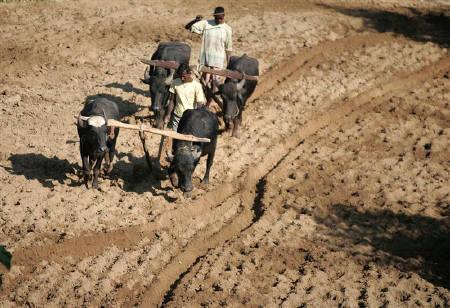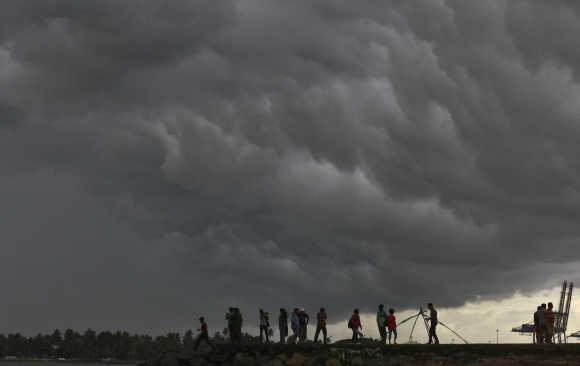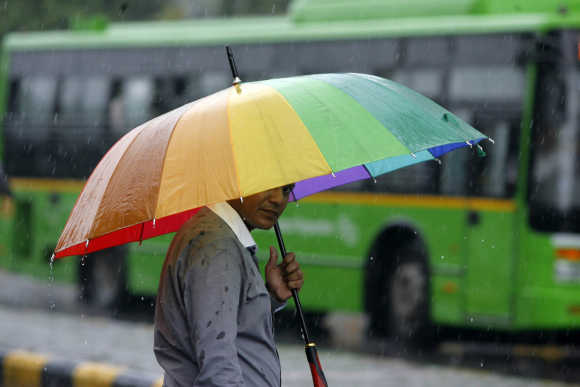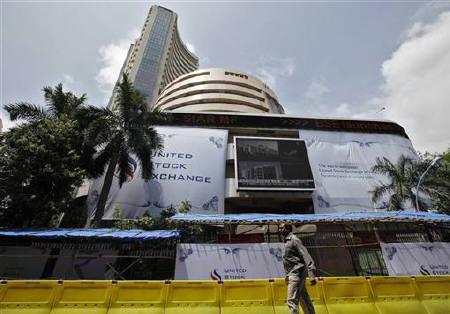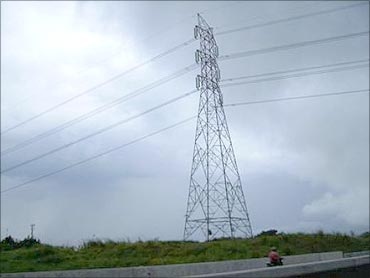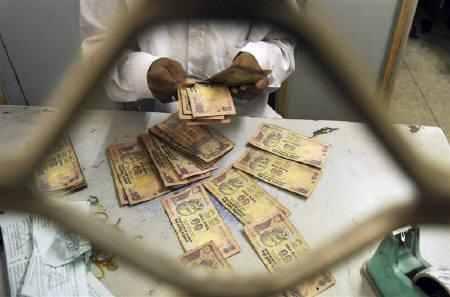 | « Back to article | Print this article |
Of wrong rain and the economy
Most recently, IMD failed to predict the 2009 drought and continued to mislead policy makers into believing that it was only a 'rainfall deficit' well into August, writes Shreekant Sambrani.
What would happen to an organisation that failed to meet its mandate year after year?
Any sensible promoter would put it on notice to perform or perish and closely monitor the results, if not wind it up altogether.
But no, not the government of India.
It rewards such a body with state-of-the-art equipment worth thousands of crores and provides increasing budgetary support to a bloated staff with fancy titles.
Click NEXT to read further. . .
Of wrong rain and the economy
No, this is not about Air India -- which fits the description -- but the India Meteorological Department, or IMD.
Air India was once a proud and profitable carrier, and we may cut it some slack on account of the gloomy aviation scenario globally.
Alas, the IMD has no such fig leaf.
The IMD's website lists its weather-related mandate as being 'to provide current and forecast meteorological information for optimum operation of weather-sensitive activities like agriculture, irrigation . . . to warn against severe weather phenomena like tropical cyclones, nor'westers, dust-storms, heavy rains and snow, cold and heat waves, etc, . . . [and] to provide meteorological statistics required for agriculture, water resource management, industries, oil exploration and other nation-building activities."
Click NEXT to read further. . .
Of wrong rain and the economy
It discharges these onerous duties under a director general, five additional directors general and 20 deputy directors general, all but 11 of the top 26 officials being located in Delhi.
It has a supercomputer and countless other pieces of high-tech equipment.
The last available estimate of revenue expenditure for meteorology alone was Rs 300 crore (Rs 3 billion) in 2010-11.
It tries hard to impress.
Devangshu Datta wrote in this paper, "Thousands of differential equations are programmed and solved to simulate rainfall and temperature patterns, with a broad range of assumptions of the value of many variables.
"Weather is influenced by many variables that interact with each other in a non-linear and complex manner, creating multiple feedback loops" (Moving weather maths up a grade, Business Standard, June 29, 2012).
Click NEXT to read further. . .
Of wrong rain and the economy
All its Herculean labour notwithstanding, the IMD has never foretold a looming weather disaster.
It typically weighs in after a heat or cold wave, thunderstorm, flood or cyclone and warns us of more to come when the worst is already over, as I previously pointed out in these pages (IMD and its pastcasts, April 30, 2007).
Its record of providing information for what it calls 'nation-building activities', such as agriculture and irrigation, is worse.
Most recently, it failed to predict the 2009 drought and continued to mislead policy makers into believing that it was only a 'rainfall deficit' well into August!
This year is no different.
The IMD's revised forecast is of 96 per cent of the average long-term precipitation of 890 millimetres (mm).
Click NEXT to read further. . .
Of wrong rain and the economy
As of July 15, the rainfall across the entire country is 232 mm, which is 22 per cent short of the average to date.
The deficit would have been far higher but for some heavy rains in Madhya Pradesh, eastern Rajasthan and the north-east.
For most of the country, the monsoon so far has not been even half of what it should be.
But such is the intellectual bankruptcy of the IMD that not only does it get television weather reporters to announce the daily variations in deficits in over-the-top tones otherwise reserved for Sensex figures, but it also reports these 'improvements' in its comparative rainfall statements of the season.
Click NEXT to read further. . .
Of wrong rain and the economy
Such obfuscation could be considered criminal.
At least Agriculture Minister Sharad Pawar appears to be wise to the IMD's game, and has some contingency plans.
Aggregation of rainfall across the country and its averaging are, in themselves, unsound and inappropriate concepts.
They are relevant only when there is some possibility of addition or compensation.
It is possible for me to meet my current income deficit through savings from the past or borrowings against future incomes.
Copious rains in August cannot meet the deficit in June or July except as a paper exercise.
Click NEXT to read further. . .
Of wrong rain and the economy
It is theoretically possible that a dictatorial regime can impound nearly half of Mukesh Ambani's income and give it to his chauffeur to ensure that they both get what is otherwise their average income.
But floodwaters of Dibrugarh due to excess rain bring no succour to Dwarka, hit by an extended dry spell.
This is not the only fault of the IMD's efforts.
Mother Nature herself does not know what the weather would be like more than three weeks in advance.
We may have reliable associative relationships of monsoon rains with various other phenomena, leading to the thousands of differential equations and dynamic models that engage the IMD's fancy.
Click NEXT to read further. . .
Of wrong rain and the economy
They are not cause-and-effect relations, and are as fraught with uncertainty as predictions of, say, a child's career path based on her ancestry and the record of her school.
I have grown long in the tooth pointing out the wastage of effort and resources involved in the IMD's obsession with season-wise forecasts -- most recently in a series in these pages in 2009, when the IMD was leading us in a merry dance even as the second-worst drought in the history of independent India was unfolding.
In the process, the infinitely more relevant concerns of spatial and temporal distribution of rain are sacrificed.
The IMD has lately provided disaggregated, district-wise forecasts.
Click NEXT to read further. . .
Of wrong rain and the economy
How good are they?
Here is a sampler.
For almost the entire month of June, the five-day forecast for Vadodara district comprised 4 mm of rain on the second day, with the rest being dry.
Since July 5, it has changed to 16 mm on the first day, 12 mm on the second and so on.
I check them every day and find a degree of 'comfort' in these forecasts being rolled over day after day!
Click NEXT to read further. . .
Of wrong rain and the economy
The fact is that since June 15, when the monsoon was supposed to set in here, we have had exactly three days of rain exceeding 15 mm a day -- the rest receiving not even enough of a shower to wet the pavement.
"If it ain't broke, don't fix it," goes a piece of folk wisdom.
The IMD is clearly broken beyond repair.
The only way to fix it will be to put in place simpler alternatives that work and it will not be a day too soon to do so.
Some thoughts on this follow, in a companion piece.
The writer taught at the Indian Institute of Management, Ahmedabad, and helped set up the Institute of Rural Management, Anand
